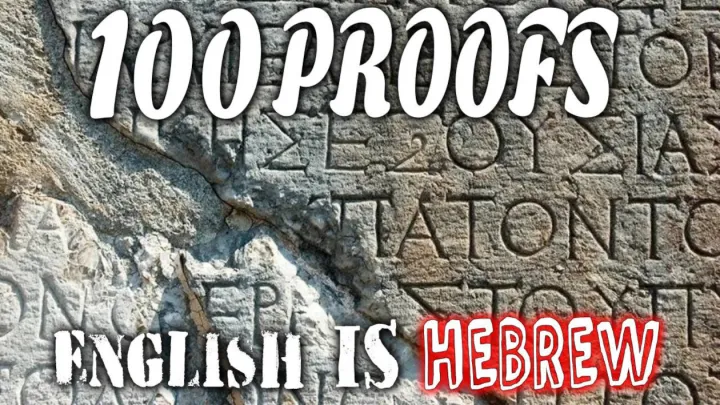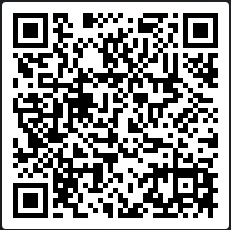TruthVid's 100 Proofs that the Israelites were White, Part 74: 97, Similarities of words in European languages with Hebrew, continued

TruthVid's 100 Proofs that the Israelites were White, Part 74
This is now part four and hopefully the final part of our discussion of the Hebrew language and its relationship to the languages of Europe, which for us is mostly limited to English along with some Latin and Greek. Eventually we hope to add many more entries for those and other languages to this list, as soon as we can afford the significant amount of time it would require to continue this study. However for now, we certainly hope to have already demonstrated that many common everyday words which are found in each of these languages are similar or even identical to Hebrew words in both sound and meaning. There will always be skeptics, however the implications of the evidence which we have offered here cannot be overlooked, especially once they are considered along with the cultural similarities and historical links between these same nations. The affinities between the languages of the ancient Israelites and the nations of Europe go far beyond the fact that those nations used the same so-called Phoenician alphabet. These languages must be directly related, and were even derived or descended from Hebrew, albeit with other ancient influences. Here we shall continue that discussion.
97) Similarities of words in European languages with Hebrew, continued.
At first I thought to make a summary list of all of the basic words which we have already presented which are at least nearly identical in Hebrew and English, and repeat them as an introduction to this final part of our presentation. However I realized that also may take too long to serve that purpose here. So here is a shortened list, although some readers may have different opinions concerning both these and the words which I did not include here: ash, day, ban, batter, bear, bore, booth, dash, deem, dumb, grope, growl, hammer, halo and hook all stand out in our first list. The words harass, sod, cable, cage, core, coop, cupola, carrot, tame, tor, tumor, term, yell, year, yeah, yes, cave, cavity, cell, clap, love, live, liver, light, laugh, lick and lash all stand out in the second.
From our third list the words which stand out the most are, in my opinion, mare, marry, more, mow, make, machine, mechanic, mat, matter, mute, mutate, mutter, metal, minute, minus, minor, mince, minimum, mint, money, manor, manse, massacre, mirror, mirage, marshall, near, neigh, naked, negate, negative, nag, nail, no, nude, neuter, nasal, nose, nozzle, natal, nation, nature, nurture, knock, nausea, nauseate, nautical, fall, fail, secure, soothe, sore, sour, suit, chafe, chaff, same, semble, similar, abide, angus, order, attire, eye, amiable and amicable. Finally, from the first part of our fourth list, the words which stand out are amass, mass, neck, rack, reckon, wreck, erect, arid, arrears, power, port, portal, pack, package, pan, pane, panel, pick, pinnacle, pass, pace, pause, pose, pummel, part, parse, park, paradise, pear, parent, preside, president, presbyter, prate, parrot, prattle, breach, break, parish, parse, purse, portion, pot, patent, path, seed, side, sacred, sec, sack, sea, sign, and call. Of course, some of these words may have had intervening steps in Greek or Latin which affected the modern English forms, but certainly not many of them. Furthermore, many of these words are so rudimentary and of such anitquity in our English language, that they must have evolved directly into English from ancient Hebrew.
This short list we have just offered contains 160 words, and of course there are many more. Here we shall 54 more words from the balance of lists 4 and 5, which are listed below. These 214 words alone prove that our assertions have substance, as these are all very basic English words. Now we shall begin in the middle of our fourth list with the Hebrew words numbered by Strong’s Concordance as 6972 and 7032, quwts and qets, one which is defined primarily to mean to clip off, and the other as an extremity. These are indeed cognate with our English terms cut and cuts, both the noun and the verb.
In this final presentation from our fourth and fifth lists, among the English words we have identified as having Hebrew cognates are cut, come, catch, cane, canon, crow, cry, corn, court, chart, ram, rage, roar, raze, razor, rake, rob, reel, rash, say, said, shower, shoot, shawl, saw, shore, shuck, save, safe, share, sheath, shack, shield, shelter, show, sate, satiate, saturate, serrate, sack, shriek, set, seat, steer, tomb, tour, turn, taurus, tack, token, take, took, tall and tame.
Sources for discussion:





 Please click here for our mailing list sign-up page.
Please click here for our mailing list sign-up page.







